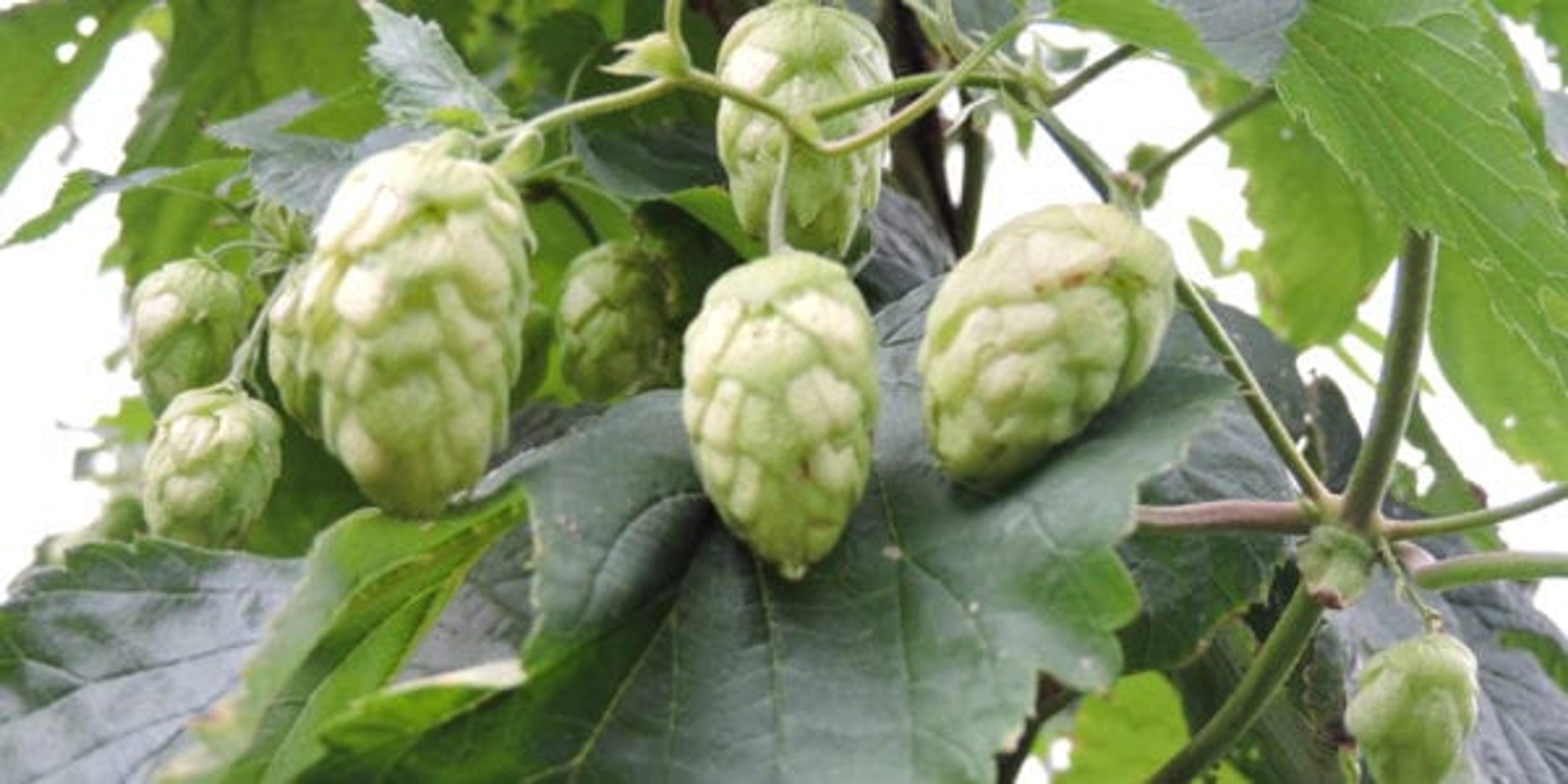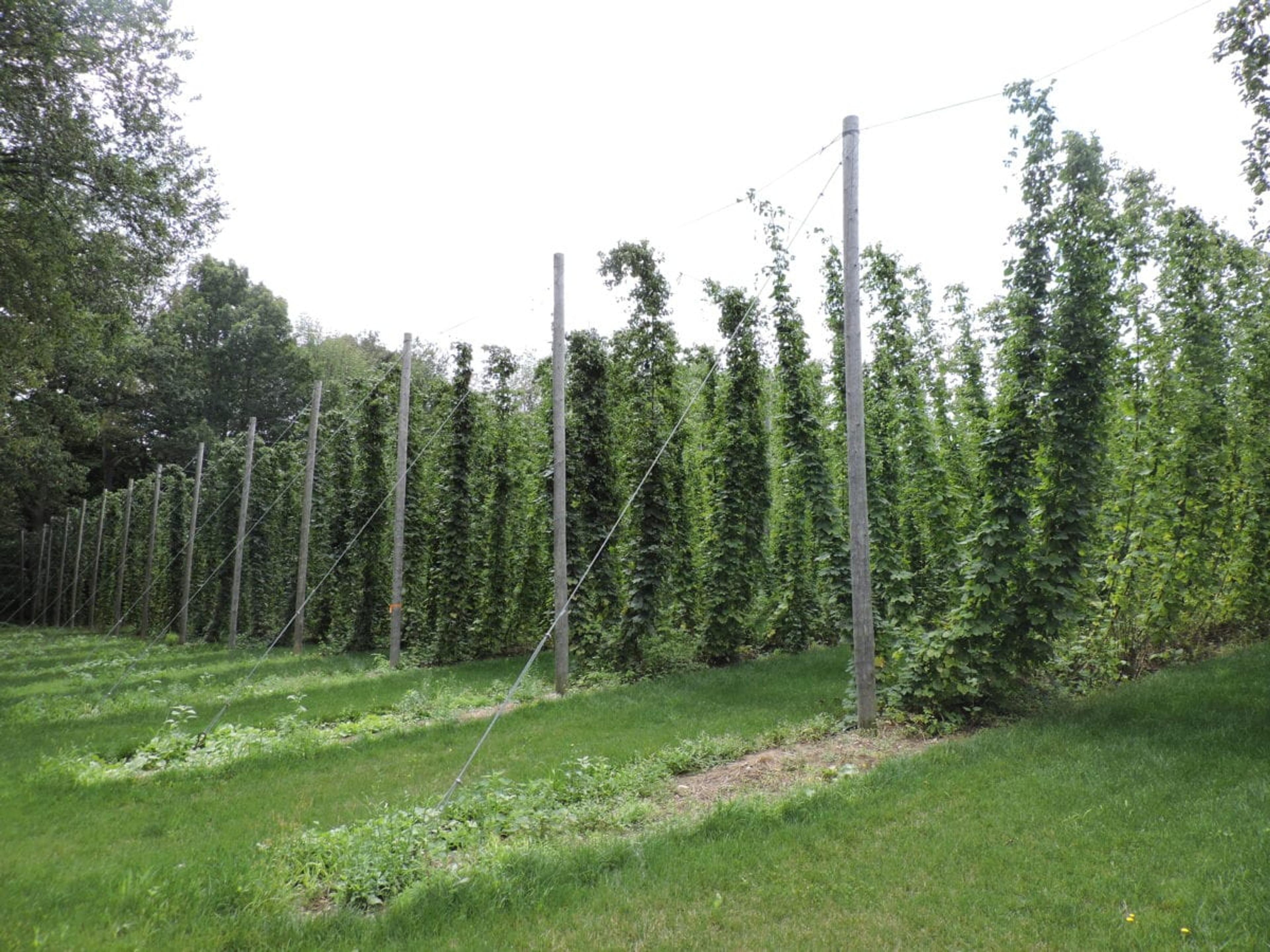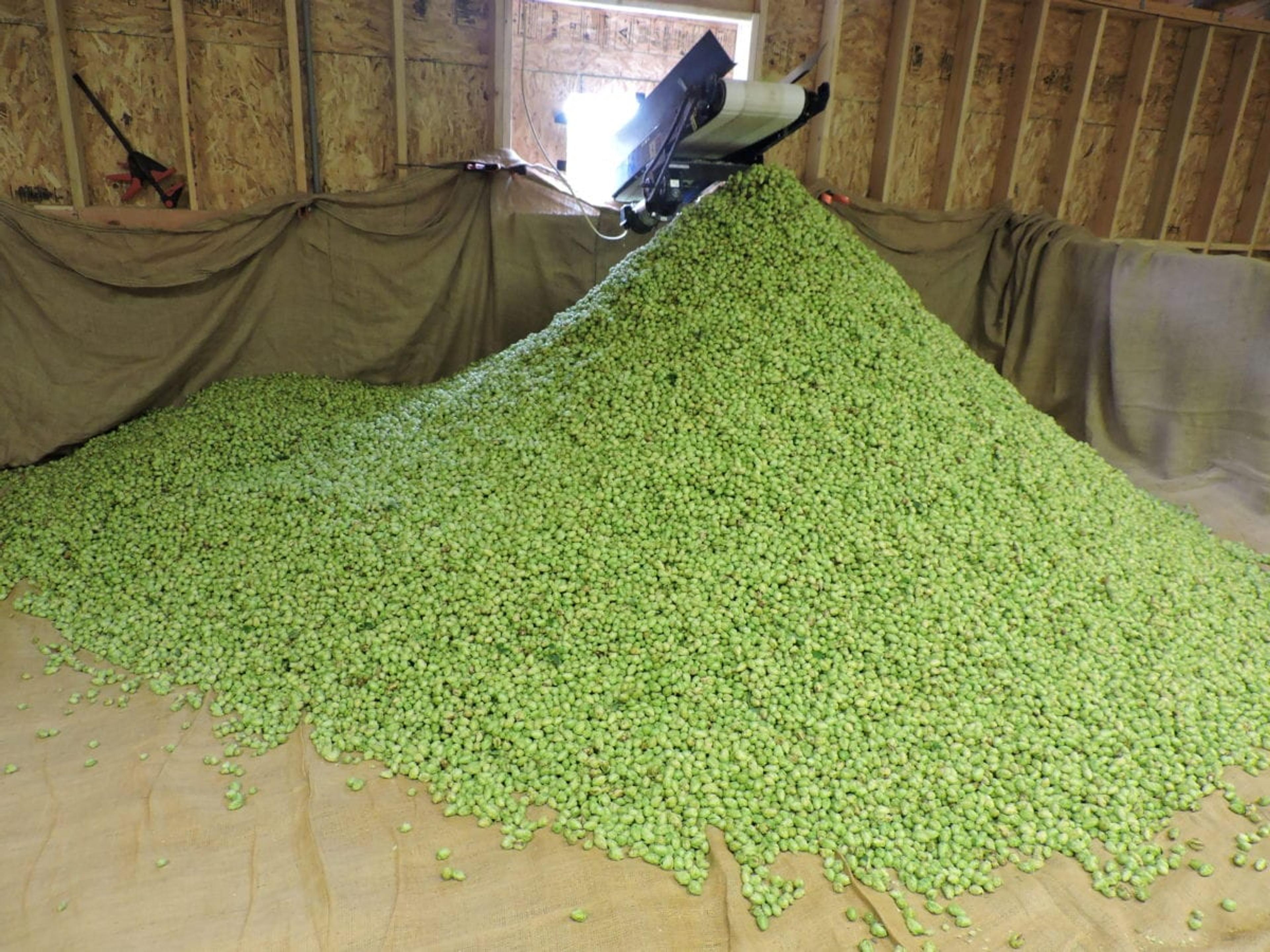Growth in Michigan Hop Farms Tied to Craft Brewery Boom

Julie Bitely
| 5 min read

It’s no secret that Michigan’s craft beer business is booming.
Craft breweries are opening at a dizzying pace, with Michigan ranked fifth in the nation in terms of the number of breweries per state.
“There are so many opening that it’s difficult to keep track of,” said Scott Graham, Executive Director of the Michigan Brewers Guild.
Perhaps it’s no surprise then that hop farming in Michigan is exploding as well.
Hops are pinecone-like flowers that grow up toward the sky on tall trellises. They’re used in the beer-making process to add bitterness and aroma to beer, as well as to add flavor and help preserve the brew.
The History of Hops in Michigan
Rob Sirrine is a Community Food Systems Educator with the Michigan State University (MSU) Extension. He has extensive knowledge about hops and works with Michigan farmers.
In the mid- to late-1800s, Sirrine said Michigan had about 400 acres of commercially-grown hops. Nationally, hop production gradually shifted west, where yields were higher. As recently as 2008, Sirrine estimates there were probably only about one to two acres of hops planted in Michigan. Today, that number is closer to 600 acres.
“It’s a very new phenomenon here,” he said.
Because of Michigan’s location along the 45th parallel, it’s an ideal place to grow hops due to the 13-hour growing day they require. Hops also prefer well-drained, sandy soils, which Michigan has in abundance, Sirrine said.
At $12,000 to $15,000 per acre, which doesn’t include the cost of purchasing and clearing land, installing the infrastructure to support hops is a hefty investment. Still, farmers are jumping on board as Michigan’s craft beer culture shows no signs of slowing down.
“Without the craft beer movement, there just wouldn’t be a hop industry here,” Sirrine said.
On the Farm
“That’s really what propelled us,” said Pam Miller, who along with her husband John owns Hopyards of Kent, a 14-acre farm and processing facility in Greenville. “It was all about supplying that (beer industry).”

The Hopyards of Kent in Greenville.
The couple was looking to plant some type of crop on the acreage they’d bought for retirement. At first they considered lavender or sunflowers, but their son-in-law, Ian Mortenson, convinced them hops were where it’s at.
Mortenson grew up in Yakima Valley, Wash., and many of his neighbors were growers. The Millers and Mortenson visited growers out west and came back with a plan. They interviewed brewers before they planted to make sure they’d have customers when it came time to harvest the crop. There was definite interest and in 2011, their business was born.
At the Hopyards of Kent, the Miller family grows Cascade, Centennial, Chinook, and Crystal varieties of hops. Most notably, their hops were used in Founders’ Harvest Ale.

Hops ready to be dried and processed.
Everything they grow is processed onsite into a usable pellet form. Harvest season runs from late August through mid-September, when mature vines are cut down, then fed into a large machine that picks the cones. They’re then dried, milled, pelletized and bagged for sale.
Miller said to pay forward the hospitality shown to them when they were first getting started, they’ve committed to help others get up and running. The couple host teaching sessions for people interested in growing hops and allow other local farmers to use their processing facility.
“We are a teaching and sharing farm,” she said.
The Millers and others sell their hops through United Hops Brokerage, the first hop broker for growers in the Midwest. Miller acknowledges there’s no way hops farmers in Michigan can possibly grow enough crop to meet the incredible demand in the state.
“We cannot produce enough to supply the demand that brewers need,” she said.
A Local Movement
Graham from the Brewers Guild said brewers have no trouble getting hops from other states, but he does see a push by many to try to use local ingredients when they can. Michigan hop farmers may not be able to supply enough hops for a large-distribution beer, but they’re very much in demand when it comes to small-batch brewing and local collaborations.
“They’re taking a leap of faith not dissimilar to what the brewers did years ago,” he said.
Sirrine said a recent announcement by New Holland Brewery that they’d only use locally-grown products in beer produced for their Pub on 8th restaurant and brewpub in downtown Holland points to a growing trust among brewers that Michigan hops will give them what they need to make a quality end product.
“They’re kind of putting themselves out there with the confidence that the quality and consistency of Michigan hops will improve,” Sirrine said.
Graham expects more demand for Michigan hops due to a general trend toward wanting to eat locally grown and produced products.
“Michigan people like Michigan things,” he said.
Quality Hops Make Quality Beer
As long as Michigan producers are competitive on quality and price, Graham and Sirrine are optimistic about the future of the hop farming industry in the state.
“In general, there’s definitely a potential for people to be successful growing hops, in the near future as well,” Sirrine said.
Graham said the quality of Michigan hops is “getting good.” With Michigan-made beer accounting for only six percent of the beer sold in Michigan, Graham sees no foreseeable slow-down for brewers or farmers.
“The future is very bright for the continued growth of the beer industry,” he said.
As for Miller, quality is always top of mind. If brewers aren’t satisfied with her hops, it doesn’t matter how many acres she grows.
“We’ve never wanted to be the number one grower in Michigan. We’ve wanted our reputation to be built on quality,” she said.
Are you helping drive the Michigan beer boom? Tell us about your favorite local breweries in the comments.
If you enjoyed this post, you might also like:
Photo credit: Julie Bitely





